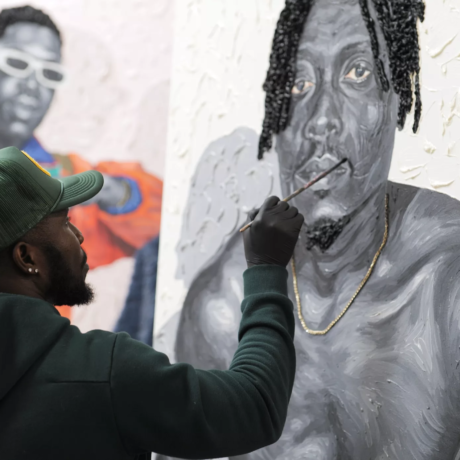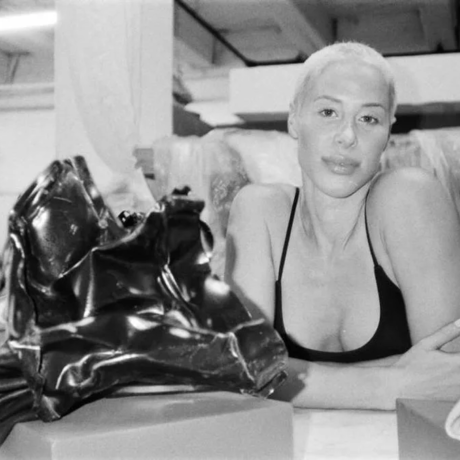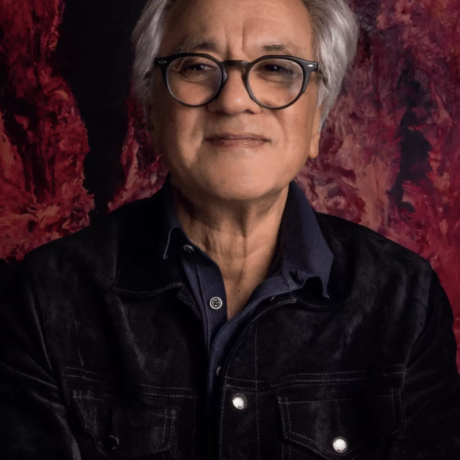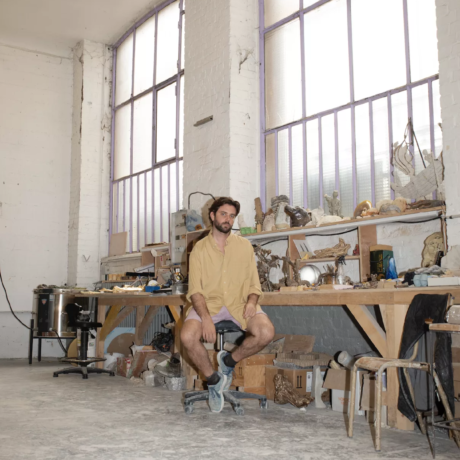
I was outspoken as a teenager. I clashed with teachers at school, where I would often pit my own views against everyone else’s. I could be pulled into an argument on just about anything. Looking back now, I can’t help but think that all I really wanted was to be contrary. Every one of us likes to feel that we are different, and this was my way of standing out.
My attitude has changed in the intervening years, with my edges smoothed down by my time struggling at university, as well as my experience first as an intern and shop assistant, and later as an arts writer and editor. I didn’t want to fit in at school, but non-conformity is a choice that becomes increasingly difficult to make as you progress to adulthood and the responsibilities that come with it.
On the shop floor, I couldn’t do much more than roll my eyes as an overbearing manager turned their back on me. In my internship at a major media brand, I smiled brightly at meetings even when I did not agree with what had just been said. I was acutely aware of my own disempowered status at the bottom of the pile, and felt frustrated that I could no longer say exactly what was on my mind.
Of course, the change in my behaviour was far harder to swallow precisely because it was a decision that was mine alone to make. There were no teachers to rebel against, only my own precarious aspirations and the treacherous path towards achieving them. Now, I have learned when to stay quiet and when to raise my voice. I haven’t made major compromises in my work so far, but this resistance has at times come at the expense of higher earnings or career progression, which I am fortunate to have been in the position to refuse.
“It’s difficult to believe in your power to change the status quo if no one has ever really listened to you”
I have been thinking again about who gets to speak up as Covid-19 takes hold worldwide. Governments have struggled to make decisions on the closure of schools, restaurants and many other crucial industries, leaving workers in the impossible position of either risking their health or refusing to fall into line. I have heard from friends in the service industry of bosses who have told staff not to come back again if they refuse to work their shifts during this time. Meanwhile, others who would not be able to survive without their regular wages continue to clock in despite their fears.
The ability to make your voice heard is a privilege that many cannot afford. The recent UCU strikes at universities and art schools across the country were vital in demanding real change, but each day of the protests inevitably hit hardest for those in the most financially vulnerable position. The same can be said of strikes that have been staged at museums around the world in recent months, from the Science Museum in the UK to the Louvre in Paris. How long can anyone stand to lose their daily earnings?
It’s not just economic stability that helps to bolster those who speak up when others cannot, but also education and background—factors far less easy to measure than a bank balance. Belief in your own convictions can be easily eroded if you are rarely asked to articulate them. It’s difficult to believe in your power to change the status quo if no one has ever really listened to you before. It only takes a brief glance at Britain’s prime minister to recognise that confidence can be bought with an expensive education, and that it is inevitably the loudest voices which will receive the most attention. Sometimes, it feels like only the loudest voices are heard at all.
Nowhere is this truer than online, where debate rages and bullying is rife. It can all end up feeling just like being back in the school yard. While silence is often lauded as a virtue in the workplace, social media encourages people to speak out—for better or for worse. Artists, designers and others working in the creative industry are often urged to throw themselves into the fray.
“Instead of focusing on our work alone, we are forced to package ourselves for public consumption“
I know that my work as a writer has often been dependent on my engagement with social media. While an Instagram or Twitter page can undoubtedly bolster an artist’s career and help them to reach new audiences, it also best serves those with a suitably outspoken temperament and a knack for self-promotion. Instead of focusing on our work alone, we are forced to package ourselves for public consumption.
There is a homogeneity that comes with social media, and it’s all too easy for everything to start to look the same on Instagram’s rigid grid. While the internet undoubtedly connects people from all over the world and allows for conversation on a global scale, it has also led to entrenched division and discord. We can all have a voice online, but not everyone feels comfortable participating. To deviate too far from the agreed script amongst your peer group is to risk being permanently ostracised.
Social media, like the world of work, can have a flattening effect. Given that the online presence of many in the creative industry constitutes an important part of their labour, it is perhaps unsurprising that the two may not be so dissimilar after all. The Times reported last month that one in six people working in the arts sector has been subjected to gagging orders as part of attempts to control “dissenting voices”. A survey found that over half of the arts workers who responded felt pressurised, harassed or bullied for speaking out at work.
I speak up in meetings in my job now, but I’m aware that my ability to do so has grown as I have gained greater autonomy in my career. We each present a version of ourselves in our working lives both online and offline, and must face compromises that some will be in a stronger position to navigate than others. I remember judging my peers harshly as a teenager for their reluctance to make themselves heard, but it is now almost impossible to imagine a time when my own voice might truly make a difference amidst all the noise.
Are We There Yet is a fortnightly column by Louise Benson. Top image © Julia SH and Nic Sadler





